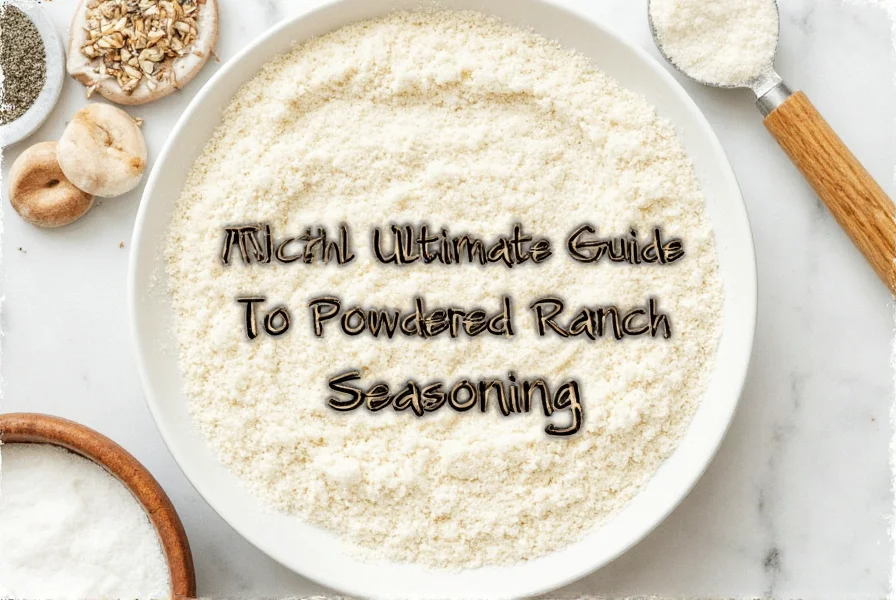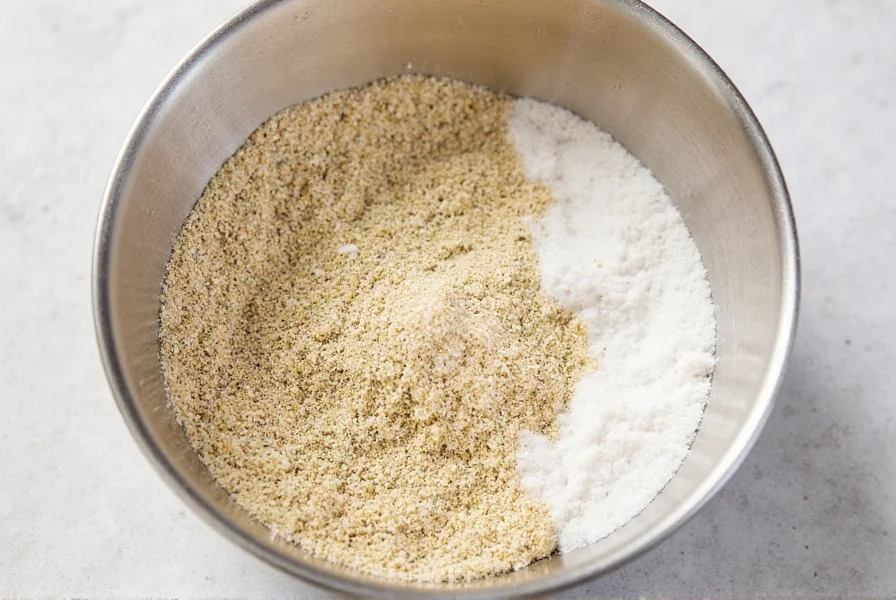Table of Contents
What Is Powdered Ranch Seasoning?
Powdered ranch seasoning is a dry blend of herbs and spices that replicates the iconic flavor of ranch dressing. It eliminates the need for refrigeration while delivering tangy, herby flavor to any dish with minimal effort. This versatile seasoning is perfect for quick meals, snacks, and creative cooking.

10+ Specific Uses & Recipes
Transform your meals with these actionable, tested applications:
- Classic Ranch Dip: Combine 2 tbsp powdered ranch seasoning with 1 cup Greek yogurt and 1/4 cup sour cream. Chill for 30 minutes. Perfect for veggies, chips, or chicken tenders.
- Ranch Chicken Wings: Toss 2 lbs baked chicken wings with 1.5 tbsp powdered ranch seasoning, 1 tsp garlic powder, and 2 tbsp melted butter. Bake at 400°F for 20 minutes for crispy, flavorful wings.
- Popcorn Seasoning: Mix 1 tsp powdered ranch seasoning with 1 tbsp melted butter. Drizzle over 4 cups popped popcorn and toss thoroughly for savory snack.
- Ranch Roasted Vegetables: Toss 2 cups chopped carrots, broccoli, and potatoes with 1.5 tbsp powdered ranch seasoning and 1 tbsp olive oil. Roast at 425°F for 25 minutes.
- Marinated Shrimp: Combine 1 lb shrimp with 1 tbsp powdered ranch seasoning, 1 tbsp lemon juice, and 1 tsp olive oil. Marinate 15 minutes before grilling or sautéing.
- Ranch Baked Potatoes: Sprinkle 1 tsp powdered ranch seasoning over baked potatoes. Top with cheddar cheese and green onions for restaurant-quality flavor.
- Homemade Ranch Dressing: Mix 2 tbsp powdered ranch seasoning with 1 cup buttermilk, 1/4 cup mayonnaise, and 1/4 cup sour cream. Whisk until smooth for creamy dressing.
- Ranch Seasoned Ground Beef: Add 1 tbsp powdered ranch seasoning to 1 lb cooked ground beef for taco filling, pasta sauce, or skillet meals.
- Snack Mix: Combine 4 cups cereal, 1 cup pretzels, and 1 cup nuts. Toss with 1.5 tbsp powdered ranch seasoning and 2 tbsp melted butter.
- Ranch Deviled Eggs: Mix 1/2 tsp powdered ranch seasoning into yolk filling for tangy deviled eggs with a twist.
Buying Guide: Top Brands for Specific Uses
| Brand | Best For | Key Features | Price Range |
|---|---|---|---|
| French's Classic Ranch | Dips and sauces | Balanced flavor, no artificial additives, gluten-free certified | $$ |
| McCormick Ranch Seasoning | Marinades and meat rubs | Strong garlic/onion profile, robust for savory applications | $$ |
| Trader Joe's Homestyle Ranch | Baked goods and snacks | Budget-friendly, creamy texture, great for popcorn and potatoes | $ |
| Lawry's Ranch | Salads and dressings | Lighter flavor profile, ideal for delicate dishes | $$ |
| Homemade Blend | Customization | Control ingredients, no preservatives, cost-effective | $ |
Storage & Freshness Tips
- Shelf Life: Unopened: 2 years. Opened: 18 months for peak flavor. Check for faded color or weak aroma to determine freshness.
- Proper Storage: Keep in airtight glass jar away from heat, moisture, and sunlight. Avoid storing near stove or dishwasher.
- Clump Prevention: Add 1-2 grains of uncooked rice to the container to absorb moisture and prevent clumping.
- Rejuvenating Old Seasoning: If flavor weakens, mix with fresh herbs or increase quantity by 25% in recipes.
Frequently Asked Questions
How much powdered ranch should I use to replace liquid ranch dressing?
Use 2 tablespoons of powdered ranch seasoning mixed with 1 cup of creamy base (buttermilk, Greek yogurt, or sour cream) to replace 1 cup of liquid ranch dressing. Start with 1.5 tbsp and adjust to taste, as brand concentrations vary.
Is powdered ranch seasoning gluten-free?
Most pure powdered ranch seasonings are naturally gluten-free since they contain only herbs, spices, and buttermilk powder. However, always check labels for gluten-free certification, especially if you have celiac disease. Some commercial blends may contain anti-caking agents with gluten.
Can I make my own powdered ranch seasoning at home?
Yes! A simple homemade blend: 2 tbsp dried parsley, 1 tbsp garlic powder, 1 tbsp onion powder, 1 tbsp dill weed, 2 tsp dried chives, 1 tsp salt, 1/2 tsp black pepper, and 1/2 tsp paprika. Mix thoroughly and store in an airtight container. Adjust ratios to match your preferred flavor profile.
Conclusion
Powdered ranch seasoning is a kitchen essential that delivers restaurant-quality flavor with minimal effort. From crispy chicken wings to savory popcorn and roasted vegetables, these specific recipes and uses will transform your everyday meals. With proper storage and brand selection for your needs, this versatile seasoning will become your go-to flavor booster for years to come.











 浙公网安备
33010002000092号
浙公网安备
33010002000092号 浙B2-20120091-4
浙B2-20120091-4